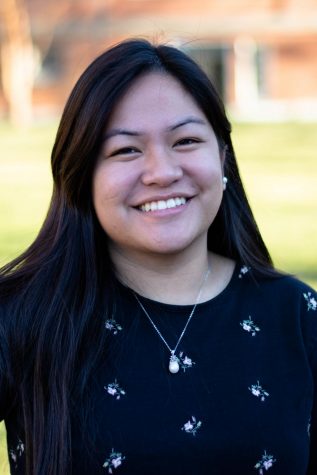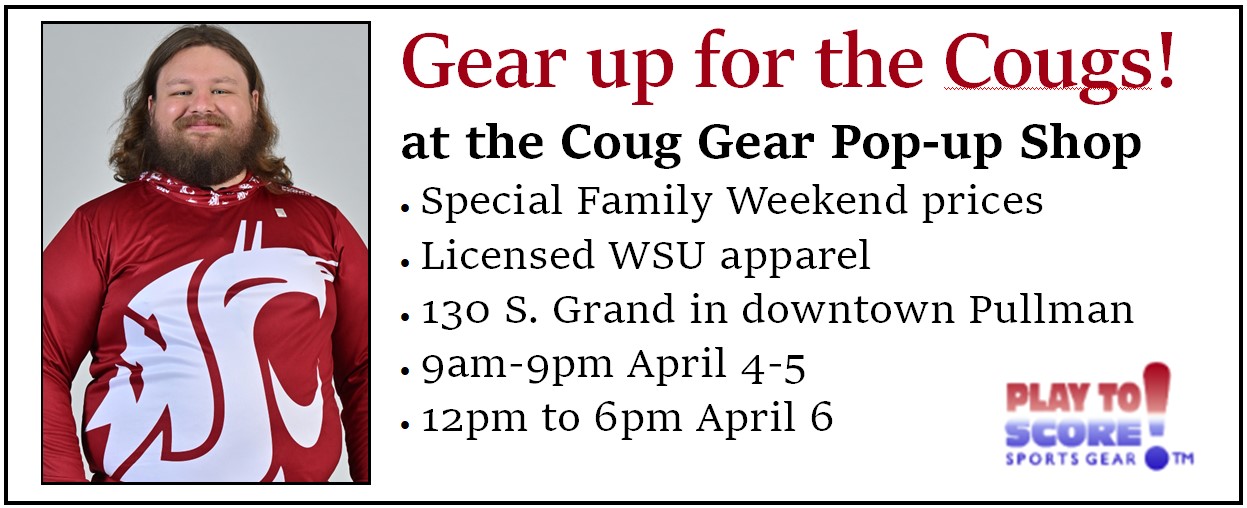WSU recycling changes labels to improve clarity
Commingled bins lead to poor recycling practices, will be updated, clarified
BENJAMIN MICHAELIS | THE DAILY EVERGREEN
“We’re trying to … make an emphasis on reducing contamination and [increasing] clean recycling,” Rick Finch, WSU waste management manager, said as he shows compacted cardboard bales in the WSU Surplus Stores.
October 23, 2018
Bins with green commingled labels will soon switch to blue recycling labels in an effort to increase “clean” or uncontaminated recycling throughout campus.
Rick Finch, manager of WSU Facilities Operations Waste Management, said they began to switch the labels this semester within popular student hotspots such as the CUB. He said commingled labels tend to push people to put non-recyclable items in recycling bins, but they reduce that practice by implementing the new signs.
“We’re trying to clarify the language, use common language in all areas across campus and make an emphasis on reducing contamination and [increasing] clean recycling,” Finch said.
The new label will include a small triangle with a No. 1 or 2 inside, which classifies the type of plastic that can be recycled and includes photo examples of that type of plastic. No. 1 plastics are things such as soda and water bottles, he said. No. 2 plastics include items like milk or detergent bottles.
Nos. 3, 4, 5, 6 and 7 plastics have a limited market and do not hold much value, Finch said. Certain objects such as milk cartons and plastic Starbucks cups would fall into this category.
“Starbucks says they’re recyclable, [but] there has never been a market for them,” he said. “We’ve either been sorting them out and sending them to the landfill or we’ve been including them with the materials we’re exporting.”
The purpose of the switch is to stray away from a commingled system, Finch said. One of the problems they encountered is that a lot of paper containers have leftover food inside and are placed in commingled bins. Those contaminate the entire load of recycling and it all ends up in landfills.
He said one of the reasons why students might be unaware of what should be recycled is because they are not paying attention to what bin they place their trash in.
“Some people don’t care,” Finch said.
A student’s upbringing or their background might be another reason why some students do not know how to recycle properly, he said.
Implementing multilingual signs is another option they hope to pursue in the future, Finch said. They met with ASWSU executives who expressed interest in working on that initiative. He said one of the obstacles they might encounter is deciding which languages should be featured and how they should disseminate the information.
Finch said having visual aids and graphic examples of things that can be recycled is one of the ways they plan on helping multilingual students.
They also plan on posting signs around campus, which include informative messages about recycling and what should or should not go in certain bins.


![“We’re trying to ... make an emphasis on reducing contamination and [increasing] clean recycling,” Rick Finch, WSU waste management manager, said as he shows compacted cardboard bales in the WSU Surplus Stores.](https://dailyevergreen.com/wp-content/uploads/2018/10/Web-99-900x598.jpg)








